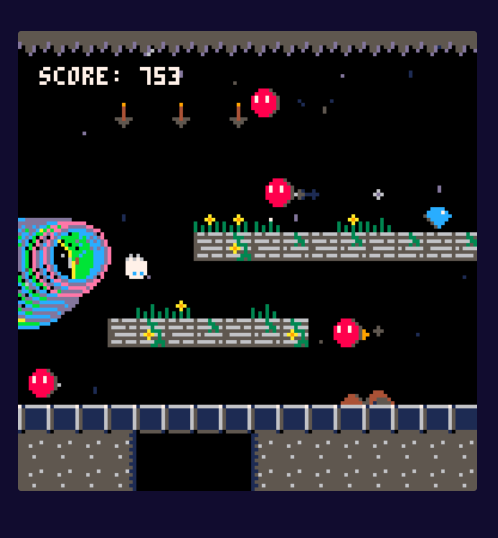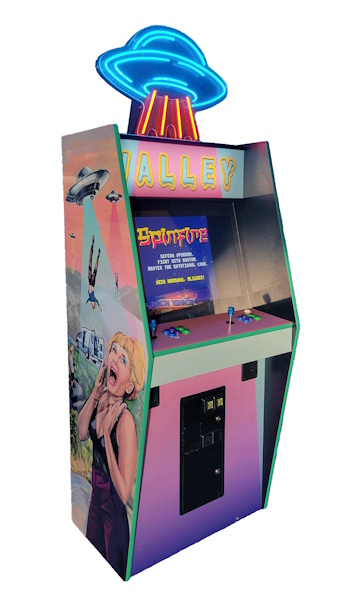Beacon-based group wants more control for creators
Many video game developers and players believe the industry nickel-and-dimes its customers and creates too many buggy, lackluster products.
Valley Arcade Games, affiliated with Happy Valley Arcade Bar at 296 Main St. in Beacon, hopes to carve out its own ecosystem on Web3, shorthand for the next evolution of the internet. A group of rebels has been meeting at the arcade this summer to hash out the details. The first gathering in May drew four people but about 20 showed up in June.
“Gaming is fun, but we’ve lost our way,” says Johnny Coughlin, who co-owns Happy Valley and co-founded its Web3 venture. “We’re including a practical component as we experiment with the future and try to right the ship.”

Here is the vision: In the next iteration of online interaction, the internet will fragment into fiefdoms that reject the marketing and surveillance juggernaut that the social media-driven Web 2.0 has become.
Blockchain security, cryptocurrency democratization and the open-source programming language Linux make this alternative network possible. As players compete, high scorers accrue digital purses they can take into the real world if the folks behind the venture build enough critical mass.
“At the core, we’re minting money,” says Jeff Werner, a strategic advisor with The Field Group, who lives in Philipstown. “If people recognize its value, we win. If not, we disappear.”
Coughlin and his partners have developed a prototype, the Valley Web3 Arcade Cabinet, one of which stands near a bend in the bar at Happy Valley. It contains eight games developed by Coughlin’s company and its partners with names like Flutter, Mine All Mine, Spinfire, Mole Patrol and Death by Darkness (see valley-arcade.com/games).

Coughlin’s brother, Billy, composes soundtracks with virtual MIDI, instruments and “crazy vocals,” Coughlin says. “The music is too weird for a band, but it’s usually just right for a game.”
Cabinet players earn rewards at a rate 5.3 times higher than they could receive on their computers or cellphones, he said. Four more cabinets will be installed around the New York City metropolitan area later this summer. They retail for $5,500.
The content is plugged into the web and began livestreaming in June at twitch.tv/valleyarcade. So far this year, its games have been played nearly 190,000 times, mostly by users in North America and Southeast Asia. The blockchain assures verification of high scores and the global leaderboard’s integrity, Coughlin said.
“It’s the world’s first Web3 professional cabinet, and it cannot be manipulated,” he says. “In some games, you can buy a stronger sword than other players and gain an unfair advantage. We want a level playing field for everyone, and that’s going to be a big selling point.”

Another plus is that individuals and independent gaming firms can publish on the platform and receive royalties. Onboarding is seamless compared to other portals that require complicated 15-character passwords, says Coughlin.
The ambitious goal is to be one of the first dominoes that topple giants such as Amazon and Google, bringing “power to the people” by designing networks that will run even if Amazon Web Services (AWS) goes down, says Werner.
“A key question for Web3 is, who owns the content?” asks Kyn Chaturvedi, a business advisor visiting from Estonia. “In our world, users and developers do.”
Beyond combating corporate and individual greed and seceding from the mainstream internet, the principals and their partners are trying to create a sticky, lucrative online community with creative tools available to everyone.
So prevalent is game designing that it’s a form of pop art, says developer Joe Lang, who is creating a game called Alien Influencer for the cabinet. “It’s an open canvas, but we’re not using paint and brushes,” he says. “Inventing a game takes skill.”
Jennifer Menjivar, another developer and high-performing gamer, chimed in to note that “the best games tell stories, like biographies or documentaries.”
Related stories:
Type: News
News: Based on facts, either observed and verified directly by the reporter, or reported and verified from knowledgeable sources.
